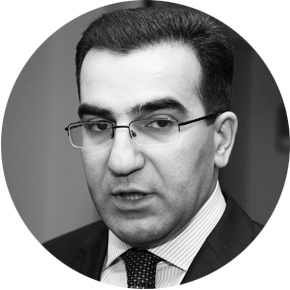The interview of Deputy Minister of Economy of Armenia Garegin Melkonyan to Mediamax
- The next phase of negotiations over the EU-Armenia Framework Agreement will take place soon. What will be the main scope of discussions in this phase?
- The official launch of the negotiations on the new agreement was made in the end of 2015.
The negotiation process is held in three directions. The first one is the political and legal direction coordinated and negotiated by the MFA. The second is sectional cooperation. The third is a large direction, trade and investment, which is coordinated by the Ministry of Economy.
We have two more meetings for trade and investment direction until the end of the year, one in October in Yerevan and another in December in Brussels.
- The parties express hope that the agreement will be signed soon. Do you think it’s possible?
- The content of the negotiations and the agreements reached are the most important part. Of course, from the viewpoint of organization of efforts it is important to have a common perception of the schedule, but I believe that the content is truly the most important part.
It is important that we complete our agenda, so that the document is not risky, but complies with the interests of our economy and entrepreneurs.
Contrary to the Deep and Comprehensive Free Trade Areas (DCFTA) Agreement, which is a part of the Association Agreement previously negotiated with the European Union, this time the efforts are much more extensive. It is true that we have experience gained in the past and that the negotiated package is not entirely new, but Armenia is now a member of the Eurasian Economic Union, which requires examination of all reached agreements to avoid possible conflicts in the future. The negotiations include discussion of hundreds of pages of technical, sector-specific documents.
- Head of the EU Delegation to Armenia stated a few months ago that there are “problematic parts” in the negotiations. Were they overcome?
- Obviously, issues come up during negotiation which are perceived and approached differently, and in such case we discuss them in greater detail and try to find a common denominator. I cannot single out any insurmountable or problematic issue at this stage.
- What will be the practical purpose of the new Framework Agreement? Will it help to attract more investments and boost the trade volumes?
- In general, the trade and investment part contains regulations relating to trade, tax administration and mutual collaboration. There are issues relating to determination of
customs value, methodology and approaches.
The package also contains issues of mutual trade, including technical regulations, standardization, accreditation, etc. Protection of intellectual property rights is in the trade section as well.
The package also includes such sections as public procurement, trade and sustainable development, transparency, services trade. We anticipate a chapter on dispute settlement and another one on competition.
At this moment, we have not received draft chapters on competition and investment from the EU. In my opinion, the chapter on investment is one of the most important directions of the negotiated agreement, and we should raise the issue in a way that allows us to improve investment environment in this format and provide conditions for European capital to flow more firmly to Armenia.
- Along with the negotiations of the Framework Agreement, talks are held on the Common Aviation Area agreement between Armenia and the European Union. What can you say about this? When will negotiations begin?
- The Common Aviation Area agreement anticipates liberalized regulations for aviation. When we informed our partners in the EU about our interest in the project, the European Commission replied it requires mandate from the European Parliament to start negotiations over this agreement. The corresponding process for mandate was already underway, but the EU adopted a new policy for aviation this summer, listing priority countries to sign aviation agreements. However, Armenia was not on that list.
Thus, we won’t be able to start negotiations on that agreement this year, although we once again confirmed to the EU our interest and readiness to start the process as soon as possible. I hope that in near future the EU will review its approach, and we’ll be able to begin negotiations.
Taguhi Hovhannisyan talked to Garegin Melkonyan




















Comments
Dear visitors, You can place your opinion on the material using your Facebook account. Please, be polite and follow our simple rules: you are not allowed to make off - topic comments, place advertisements, use abusive and filthy language. The editorial staff reserves the right to moderate and delete comments in case of breach of the rules.